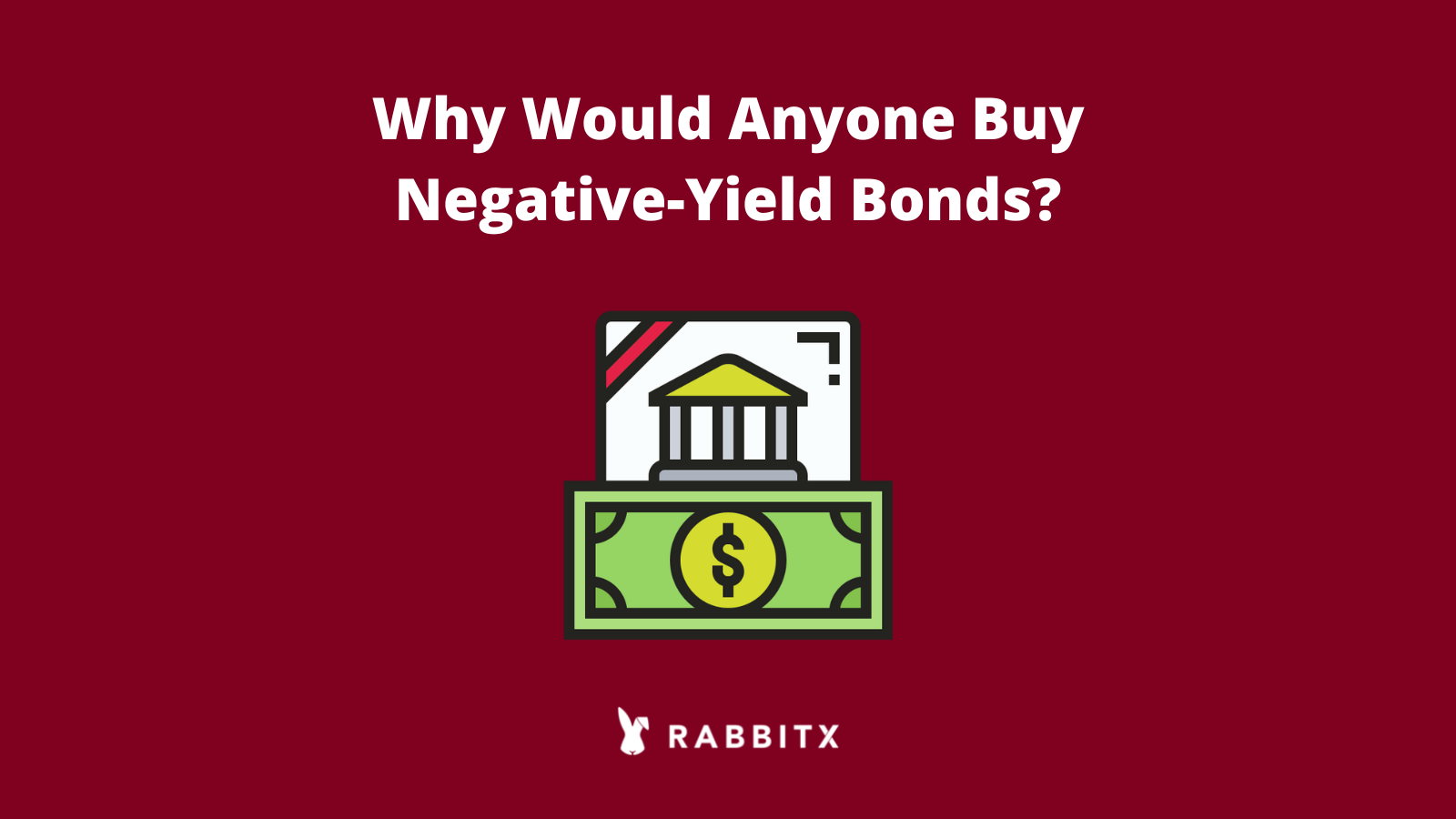Negative-yielding debt (NYD) refers to any bond where you are paying the borrower for the privilege of lending them money. A completely backwards economic concept that is a recent phenomenon in the history of documented finance. There was estimated to be over $17 trillion of NYD as of 2019, but that number has fallen to around $3T as of Q1 2022.

The negative yield doesn’t come from the bond’s coupon payments; you are still receiving interest payments at fixed intervals. However at maturity the par value returned to you coupled with the interest payments (yield to maturity) is less money than what you paid for the bond itself. Meaning you bought the bond at such a premium to par that the return of par plus all the interest payments gave you less money than what you originally started with.
A lot of us are unintentional bagholders these days, but why would someone go into an investment knowing they will come out with less money? Who is buying this stuff?
There are two types of NYD buyers with several different reasons for doing so:
Bond Traders
Hedging:
Even when rates are negative, bonds (especially sovereign debt) are still a “flight to safety” asset and tend to get bid up during market swoons or major risk events (like a big geopolitical shock). So they’re still a reasonably reliable hedge against tail risks.
Trading:
You could be of the opinion rates are headed lower, which would mean bond prices rise. For example if you’re someone who has macro opinions about Germany’s CPI print and think rates will go further into negative territory as a result, NYD can be a trade for this. But emphasis on trade, not a long-term, hold-to-maturity investment.
Institutions
Hedging:
For the same reasons as bond traders.
Price-insensitive buyers:
If central banks are doing open-market operations that include bond purchases, they will buy whatever asset meets that mandate. Some entities like pensions also must allocate a certain amount of funds towards debt per investment mandate, and this may include NYD.
Balance sheet tools:
From a strategic standpoint, this is the real (and most interesting) answer to the perplexing thing about NYD: what private market actors are holding these to term willingly? Banks, but not for why you think.
As retail apes, we view assets through an investment lens: we want more money back than what we put in, number go up. Institutions are not viewing NYD as investments, but rather tools.
Bonds are balance sheet tools for banks, and their utility is not changed because of the negative yield. Negative yields simply are an added cost to use the tool. Banks hold assets on their balance sheets to lend against, and they must consider the volatility and liquidity of the asset they’re holding when doing so. Bond markets are some of the largest, most liquid, and dependable in the world and the negative-yield is essentially a liquidity premium to using NYD as a tool for lending.
“But if they just own NYD as a balance sheet tool and value it for its collateralization and liquidity, why not just hold cash?”
Fair question. For one, the hedging explanation to NYD is a non-trivial benefit in case of a crisis. They are a useful tail-event asset. But more importantly: sovereign debt is a highly dependable repurchase agreement (repo) tool. Repo’s are a major part of financial system plumbing and bank activity, estimated to provide more than $3 trillion per day in funding activity. Banks cannot use cash for this.
So banks simply see NYD as a highly liquid, safe piece of collateral that they can leverage in many ways for lending and repo operations, in addition to a tail hedge from a capital appreciation perspective if there is a major risk-off event.
Follow at @BackTheBunny
Check out another one of our popular posts --> Why Deflation Is More Destructive Than Inflation



Comments are closed!